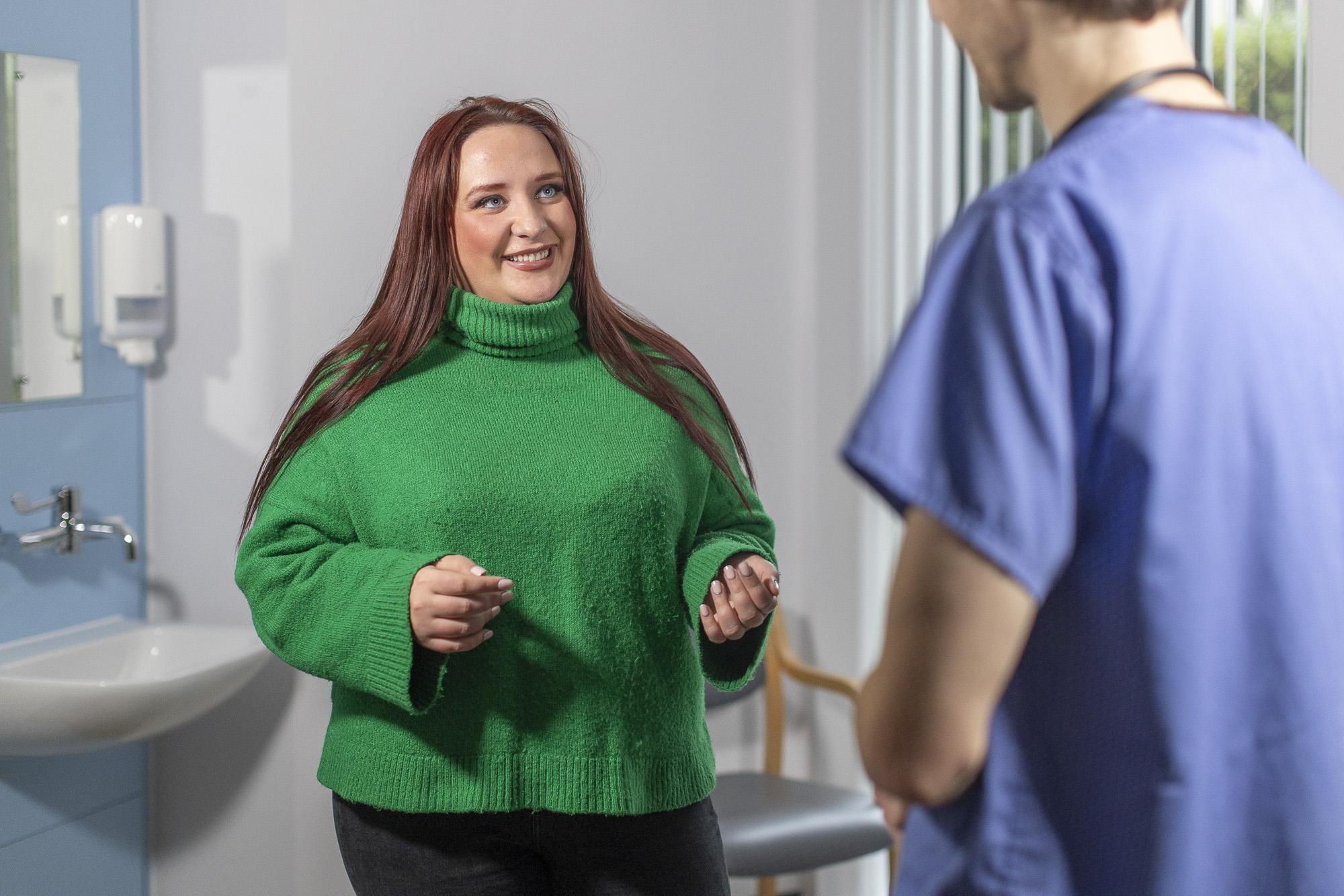
Patient Reported Outcome Measures (PROMs)
An internationally recognised initiative to use digital technology to monitor patient journeys through care.
These are increasingly central to how the success of care is measured and is a key and expanding expectation across health care systems globally.
Care Response is an internationally used web based system to automatically collect patient reported outcomes.
It was developed in the UK by Jonathan Field who successfully obtained his PhD via strong research links with Health Sciences University.
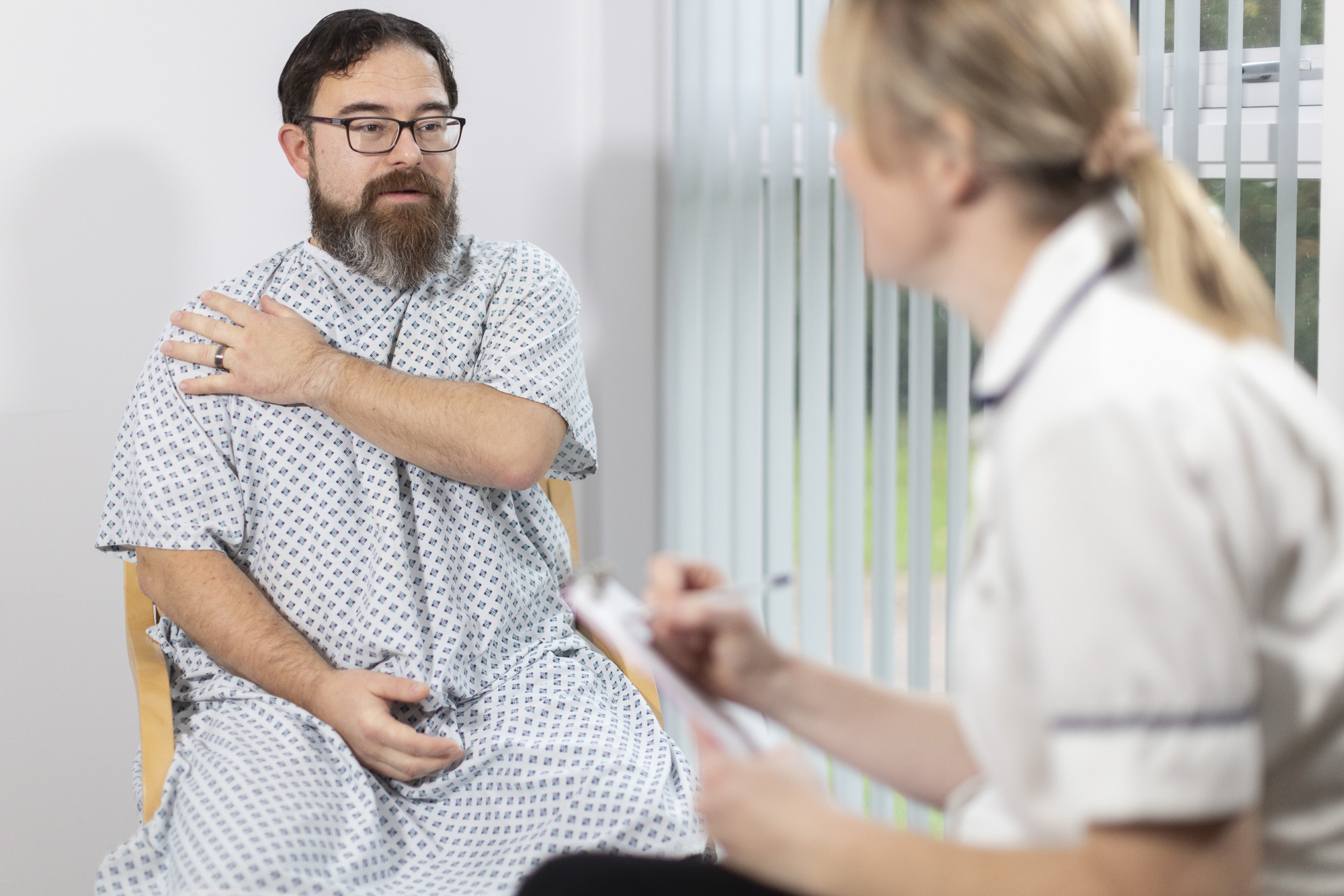
Patient Reported Outcome Measures (PROMs)
PROMs are measures that are designed to record key changes in patients’ symptoms and status while undergoing and after clinical care. These are increasingly central to how the success of care is measured and is a key and expanding expectation across health care systems globally.
There is evidence that the use of PROMs may directly affect a patients success with treatment by improving the focus of care on things an individual patient feels is important and enhancing the relationship between patient and care giver.
Historically these measures were seldom used with anecdotes and clinicians’ opinions standing in for the patient’s own voices as to how well they thought the treatment had gone. Clearly the best person to ask about whether things had improved or not would be the person with the problem (i.e. the patient) but it is only recently that such measures have been routinely employed outside of big research studies.
Commitment
The NHS is now committed to using outcomes routinely across a range of conditions with musculoskeletal problems such as back pain and neck pain using the MSK Health Questionnaire developed by Keele University. However, one of the problems in using paper based questionnaires is the amount of work and logistics involved in collating, following up, handing out and typing in of patients outcomes during care. In order to address this problem a web based system that automatically emails patients links to questions at key points during their care journey was developed as part of a PhD supervised jointly at Health Sciences University and Portsmouth University.
Over the course of the last 7 years this system has enabled the description of what happens to back pain and neck pain in particular to be carried out amongst tens of thousands of patients attending for care, mainly in chiropractic practices across the UK, but increasingly internationally.
The Health Sciences University was also the birthplace of the Bournemouth Questionnaire (BQ) which has been used extensively as a key outcome measure amongst clinicians looking after spinal pain patients.
This area of research has generated multiple publications and PhDs and puts Health Sciences University academics at the forefront of electronic PROM collection in MSK related conditions.
Latest News
Discover and read all the latest news, press releases and happenings here at Health Sciences University.
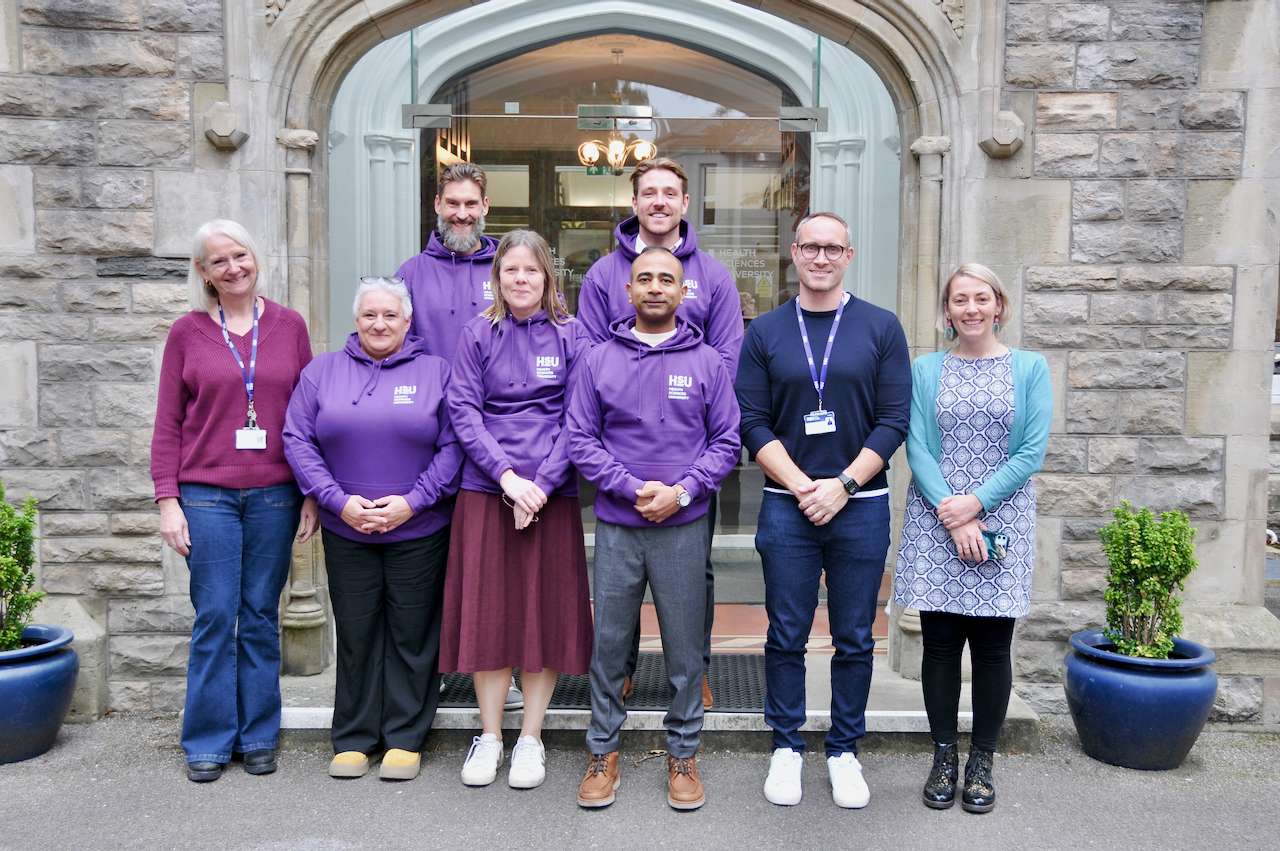
Earlier this week, we were pleased to welcome 13 new PhD students to Health Sciences University during our induction event.
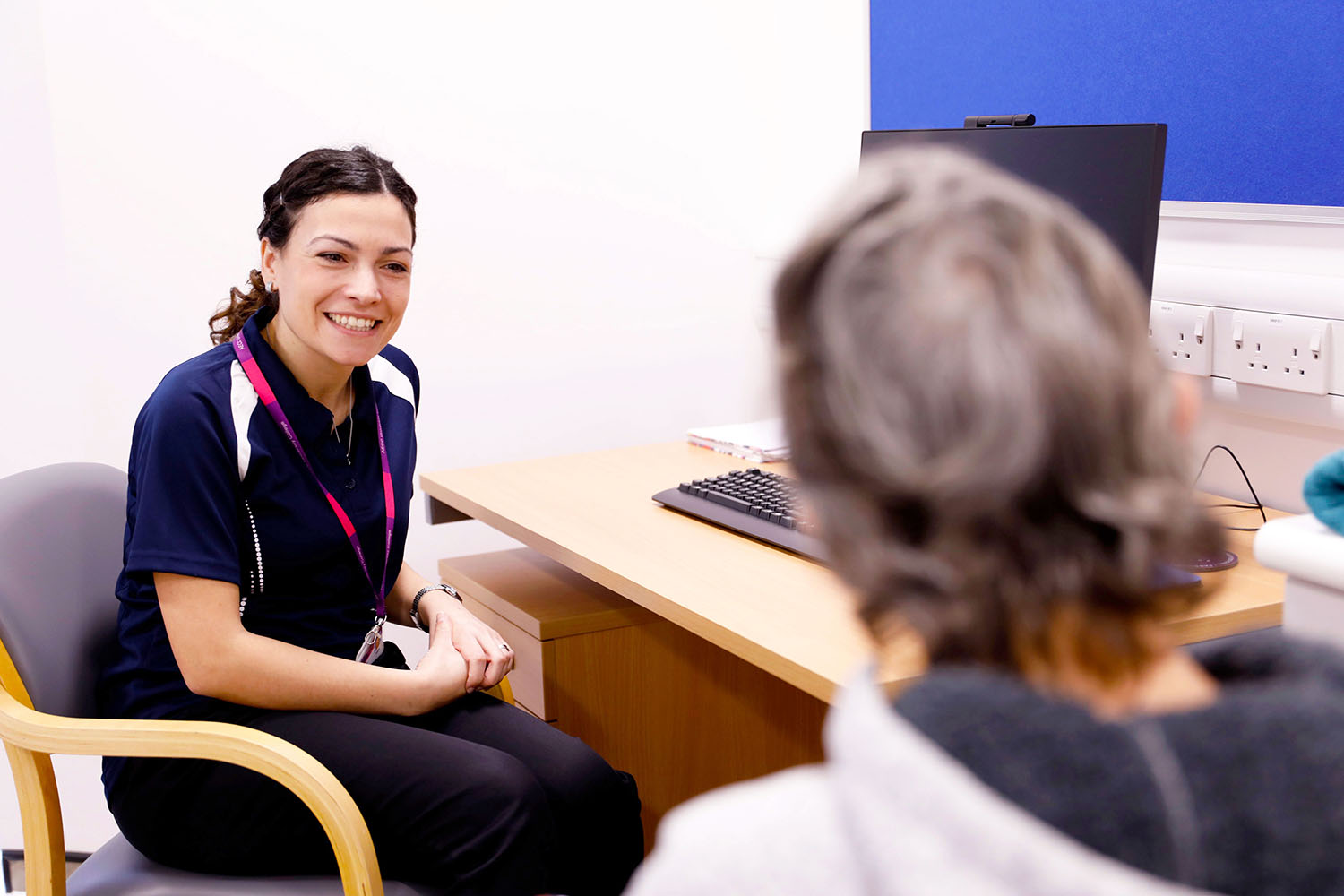
We're proud to share exciting research from Professor Steven Vogel and Emeritus Professor Alan Breen at HSU, part of a unique longitudinal study examining how UK chiropractors, osteopaths and physiotherapists manage low back pain.
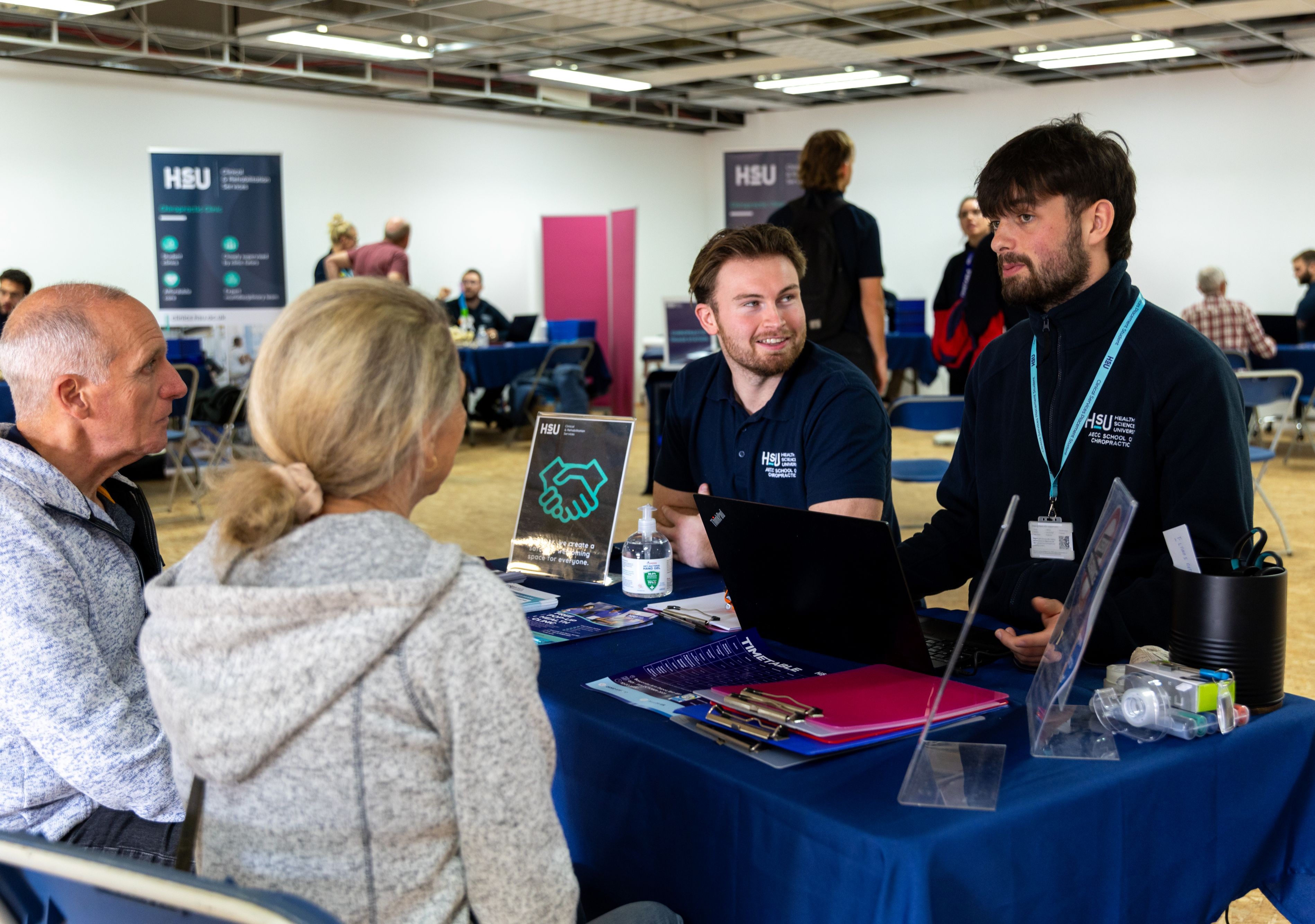
On Monday 6th October, staff and students from Health Sciences University opened the doors to its 6-day health and support pop-up event at the Boscombe Arts Depot in Boscombe High Street, at 616-622 Christchurch Road, opposite Costa Coffee.

Choosing the MSc Global Healthcare Management course at HSU felt like the right step to equip me with the knowledge and skills needed to drive transformative change in healthcare.
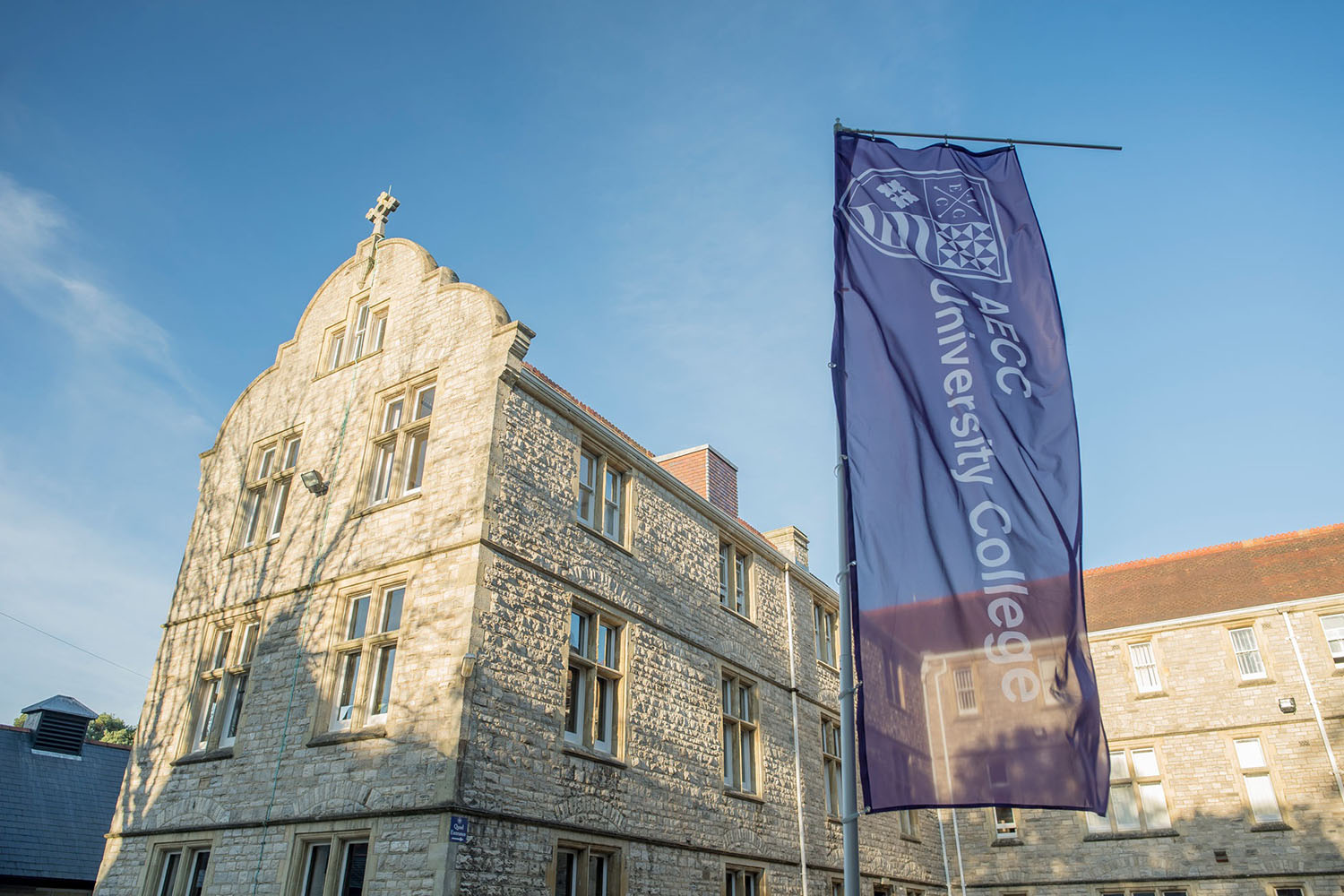
Following the recent announcement of Health Sciences University’s (HSU) outcomes in the latest Knowledge Exchange Framework (KEF) exercise, HSU is proud to announce its formal commitment to the Knowledge Exchange (KE) Concordat
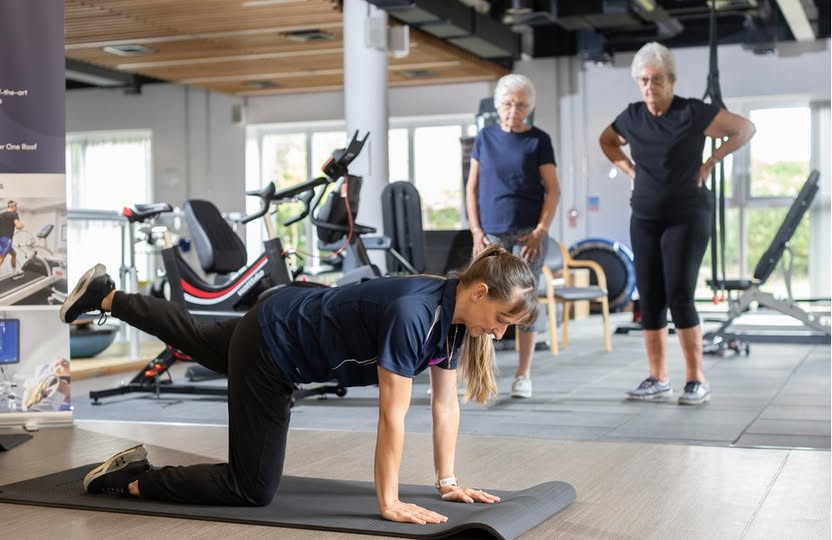
Research England has today published the results of the fourth Knowledge Exchange Framework (KEF). Health Sciences University (HSU) was included in the STEM Specialists Cluster, along with eight other institutions.
